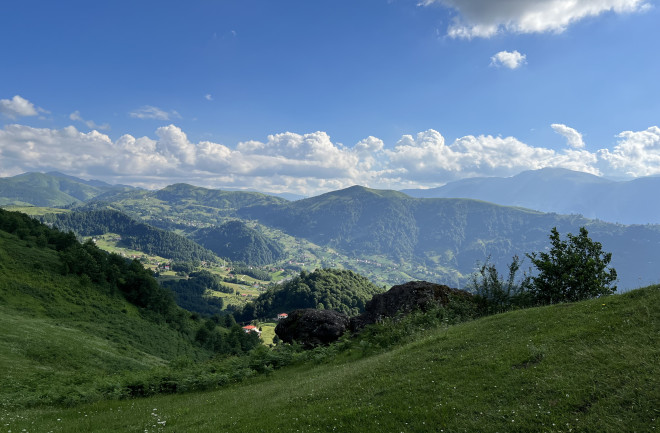Thousands of languages all over the world face an uncertain future and may soon fade away if immediate action isn’t taken. One of these endangered languages is Romeyka, a variety of Greek that has roots in the ancient Hellenistic age.
While its speakers are dwindling in numbers, especially in the Trabzon region of Turkey, Romeyka may be spared thanks to continuing research, and a recently launched crowdsourcing platform that can help document and preserve the language.
Preserving Romeyka
The push to keep Romeyka alive is led by Ioanna Sitaridou, a Fellow of Queens' College and a professor of Spanish and Historical Linguistics at the University of Cambridge and is the latest contribution to UN’s International Decade of Indigenous Languages (2022-2032). This calls for the recognition of indigenous languages and promotes initiatives that work to secure their survival.
Romeyka likely has a couple of thousand speakers left in the Trabzon region, and its chances of being passed onto future generations are growing slim due to a variety of obstacles. It does not have its own writing system, and so it must rely on oral transmission. Native speakers are predominantly over the age of 65 and are surrounded by Turkish cultural influences that may further isolate the language.
Read More: Eight Ancient Languages Still Spoken Today
Keeping Indigenous Languages Alive
Not all hope is lost, however. A new platform called Crowdsourcing Romeyka harnesses the power of public engagement to support the language. Designed by Harvard University Computer Science undergraduate Matthew Nazari, this platform invites people around the world to upload audio recordings of Romeyka being spoken.
“Speech crowdsourcing is a new tool which helps speakers build a repository of spoken data for their endangered languages while allowing researchers to document these languages, but also motivating speakers to appreciate their own linguistic heritage,” said Sitaridou in a press release, who has been studying Romeyka for the last 16 years.
Along with the platform’s launch, Sitaridou is presenting new findings about the language’s development and grammar at an exhibition in Greece. She has concluded that Romeyka comes from Hellenistic Greek, not Medieval Greek, redefining its relationship with Modern Greek.
“Romeyka is a sister, rather than a daughter, of Modern Greek,” said Sitaridou. “Essentially this analysis unsettles the claim that Modern Greek is an isolate language.”
A distinct feature of Romeyka is that it uses the infinitive, while all other Greek dialects known today do not. For example, Modern Greek speakers would say “I want that I go” instead of “I want to go.” The infinitive originally appeared in Hellenistic Greek (spoken from approximately 4th century B.C.E. to 6th century C.E.), but became obsolete in Medieval times as all Greek varieties except for Romeyka ditched it.
Read More: How to Resurrect Dying Languages
The History of Romeyka
Ancient Greek migration into parts of present-day Turkey expanded the presence of Greek language in the region, and Christianization played a large role in its spread. When the Ottoman Empire took over the area in the 15th century, Islamization caused the language to take two different paths. Certain communities converted to Islam and retained Romeyka (also known as Pontic Greek), while others that remained Christian moved toward Modern Greek.
In 1923, a massive population exchange occurred between Greece and Turkey; over a million Greek Christians in Turkey were relocated to Greece and nearly half a million Muslims in Greece were relocated to Turkey. The Muslim Romeyka-speaking communities, though, could stay in Turkey, explaining the vestiges of Greek language in the country today.
Romeyka speakers have to endure cultural pressures from both Turkish and Greek perspectives, as the language doesn’t fit neatly into either countries’ model of national identity. This has inspired Sitaridou to raise awareness of Romeyka and ameliorate the stigma surrounding it.
“Raising the status of minority and heritage languages is crucial to social cohesion, not just in this region, but all over the world,” Sitaridou said.
Read More: How Language Shapes Our Understanding of Reality
Article Sources:
Our writers at Discovermagazine.com use peer-reviewed studies and high-quality sources for our articles, and our editors review them for accuracy and trustworthiness. Review the sources used below for this article:
United Nations. Department of Economic and Social Affairs
Britannica. Trabzon
Crowdsource.romeyka.org. Crowdsourcing Romeyka
Research Gate. A brief introduction to the Pontic Greek dialect
The Routledge Handbook on Contemporary Turkey. Refugees of the 1923 population exchange between Turkey and Greece
YouTube. Archaic Greek in a modern world

